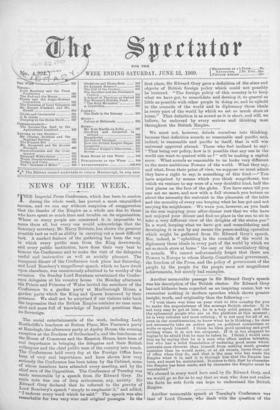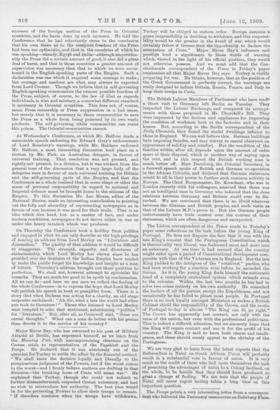Another memorable speech at Tuesday's Conference was that of Lord
Cromer, who dealt with the question of the excesses of the foreign section of the Press in Oriental countries, and the harm done by such excesses. He told the Conference that he had reluctantly cbme to the conclusion that his own views as to the coniplete freedom of the Press had been too optimistic, and that in the countries of which he was speaking—namely, Egypt and India—although unquestion- ably the Press did a certain amount of good, it also did a great deal of harm, and that in those countries a greater amount of supervision was necessary than that to which we were accus- tomed in the English-spea,king parts of the Empire. Such declaration was one which it required some courage to make ; but courage and candour are what may always be expected from Lord Cromer. Though we believe that in self-governing English-speaking communities the utmost possible freedom of the Press, subject, of course, to the law of libel as regards individuals, is wise and salutary, a somewhat different standard is necessary in Oriental countries. This does not, of course, mean Press censorship or Press suppression in a bad sense, but merely that it is necessary in those communities to save the Press as a whole from being poisoned by its own waste products. The self-governing white communities can resist this poison. The Oriental communities cannot.











































 Previous page
Previous page